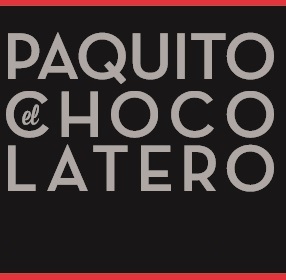Alicante Red Blend
Paquito Choco Latero Paquito el Chocolatero is an exquisite red blend that beautifully captures the vibrant spirit of Alicante. This delightful wine displays a captivating deep ruby color that hints at its generous character. On the palate, it presents a full-bodied experience, unveiling a rich tapestry of flavors that dance between luscious dark fruits and subtle spiced undertones. A well-balanced acidity adds an invigorating brightness, enhancing its appeal and making it wonderfully food-friendly. The tannins are notably firm yet harmonious, providing structure and a delightful mouthfeel that lingers in a pleasing finish. With its irresistible charm, Paquito Choco Latero is an ideal choice for any occasion, bringing a touch of celebratory flair.
Paquito Choco Latero Paquito el Chocolatero is an exquisite red blend that beautifully captures the vibrant spirit of Alicante. This delightful wine displays a captivating deep ruby color that hints at its generous character. On the palate, it presents a full-bodied experience, unveiling a rich tapestry of flavors that dance between luscious dark fruits and subtle spiced undertones. A well-balanced acidity adds an invigorating brightness, enhancing its appeal and making it wonderfully food-friendly. The tannins are notably firm yet harmonious, providing structure and a delightful mouthfeel that lingers in a pleasing finish. With its irresistible charm, Paquito Choco Latero is an ideal choice for any occasion, bringing a touch of celebratory flair.




